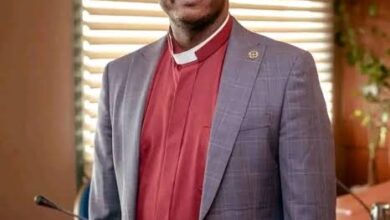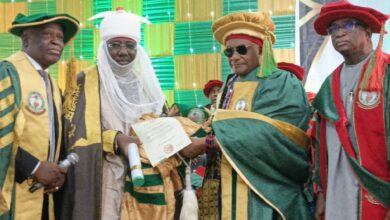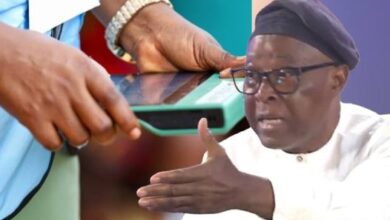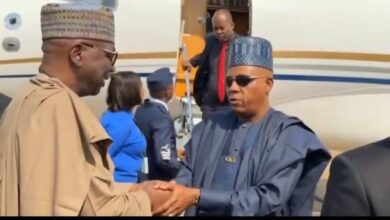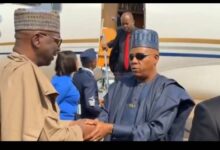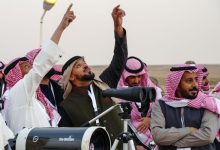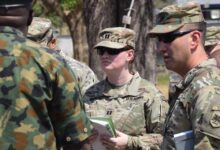NIGERIA’S HIDDEN TRAGEDY: The unspoken genocide against Muslims
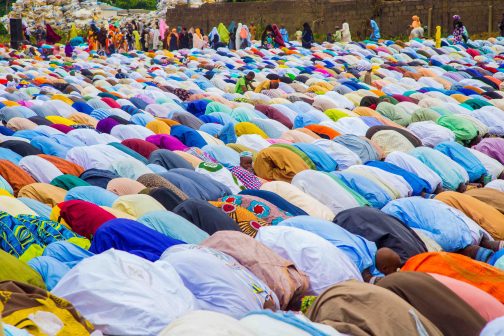
By MUSTAPHA GEMBU
The pain of Muslim communities must no longer be buried under political silence or media indifference. Every life lost in Nigeria’s cycle of violence—Muslim, Christian, or otherwise—deserves justice, remembrance
Unlike others, Muslims in Nigeria do not believe in using the names or images of their beloved ones killed in violent attacks for propaganda, sympathy, or to attract donations from international communities.
They also refrain from publicizing the names of victims or showcasing their suffering through the media to gain global attention.
Yet, despite their silence and restraint, history bears witness to several recorded genocidal attacks and mass killings perpetrated against Muslims across the northern region alone.
Below are just a few of these tragic incidents that remain largely unacknowledged or underreported.
1. Zangon Kataf Massacre (1992)
What began as a communal disagreement quickly turned into one of the worst pogroms in Kaduna State. Hundreds of Muslims were killed, homes and mosques were burnt, and entire communities were displaced. The magnitude of the killings was downplayed, and few perpetrators were ever held accountable.
2. Jos Crises (2001–2010)
Over the course of a decade, Jos and other parts of Plateau State witnessed repeated waves of violence. Thousands of Muslims were massacred in cold blood, often targeted in their homes, mosques, and markets. In many cases, the killings were carried out with impunity, while media narratives portrayed the victims as aggressors.
3. Yelwa-Shendam and Kano Retaliations (2004)
In Yelwa-Shendam, hundreds of Muslims were killed by armed militias in coordinated attacks that wiped out entire villages. The violence later spread to other areas, triggering reprisal killings and deepening sectarian divides.
4. Zaria Massacre (2015)
In December 2015, hundreds of members of the Islamic Movement of Nigeria (IMN) were killed by Nigerian security forces in Zaria. The bodies of many victims were buried in mass graves, and their families were denied justice and closure. Amnesty International and Human Rights Watch have both documented these atrocities in detail.
5. Mambilla Plateau Massacres (2017–2018)
In Taraba State, Muslim Fulani communities suffered large-scale killings and destruction of property. Villages were razed, cattle were slaughtered, and thousands were displaced. Yet, these atrocities barely made international headlines.
6. Benue and Southern Kaduna Killings (Ongoing)
In parts of Benue, Niger, and Southern Kaduna, recurring attacks have claimed the lives of countless Muslims, particularly pastoralist and minority communities. Despite the heavy death tolls, international organizations and Western media have largely remained silent.
Major Attacks on Mosques and Muslim Gatherings
Despite the sanctity of worship spaces in Islam, mosques across northern Nigeria have increasingly become targets of violence by extremist groups, bandits, and other armed elements. Below are some of the major recorded attacks:
August 11, 2013 – Konduga, Borno: Boko Haram gunmen massacred 44–46 worshippers during Fajr prayers at the Central Mosque. Over 30 were injured in what was the group’s first large-scale mosque attack.
November 3–4, 2014 – Potiskum, Yobe: A suicide bomber targeted a Shia Ashura procession, killing 15 and injuring 50.
November 28, 2014 – Kano City: Triple bomb blasts and gunfire at the Central Mosque during Friday prayers killed at least 81 (witnesses say over 200) and injured over 100.
July 17, 2015 – Damaturu, Yobe: Suicide bombers, including a 10-year-old girl, attacked Eid al-Fitr prayers, killing up to 50.
October 15, 2015 – Maiduguri, Borno: Twin suicide bombings during evening prayers killed 42.
November 27, 2015 – Dakasoye, Kano: A suicide bomber struck a Shia Arba’een procession, killing 21.
March 16, 2016 – Molai-Umarari, Borno: Two female bombers killed 24 worshippers during dawn prayers.
January 16, 2017 – Maiduguri: A 12-year-old girl bombed a university mosque, killing 4 and injuring 15.
November 21, 2017 – Mubi, Adamawa: A teenage bomber killed 50 in the Madina Mosque.
May 1, 2018 – Mubi: Twin mosque bombings killed 27 and injured 56.
July 23, 2018 – Konduga: A suicide bomber killed 11 during early morning prayers.
July 27, 2019 – Nganzai, Borno: Boko Haram ambushed mourners, killing 65.
October 25, 2021 – Mazakuka, Niger: Bandits killed 18 worshippers and the imam during Fajr prayers.
October 5, 2021 – Yasore, Katsina: Bandits shot 10 worshippers during Maghrib prayers.
November 5, 2023 – Funtua, Katsina: Armed men attacked a Maulud celebration, killing 20 and abducting others.
August 19, 2025 – Unguwan Mantau, Katsina: Bandits killed 27 during dawn prayers.
February & June 2025 – Zamfara & Borno: Bandits kidnapped an imam and 30 others; ISWAP launched fresh attacks.
These repeated assaults on worshippers reflect a growing climate of insecurity in which even sacred spaces offer no refuge.
The Silence of the World : The muted global response to these massacres exposes a disturbing double standard in how human suffering is valued. While some tragedies receive worldwide attention, others—especially those involving Muslim victims—are ignored, dismissed, or misrepresented.
This selective empathy has not only deepened mistrust but also perpetuated the cycle of violence, leaving thousands of innocent lives unacknowledged and forgotten.
The insecurity crisis in Nigeria cannot be resolved through selective justice or biased narratives. True peace demands fairness, accountability, and equal recognition of every victim, regardless of faith or ethnicity.
The pain of Muslim communities must no longer be buried under political silence or media indifference. Every life lost in Nigeria’s cycle of violence—Muslim, Christian, or otherwise—deserves justice, remembrance.


